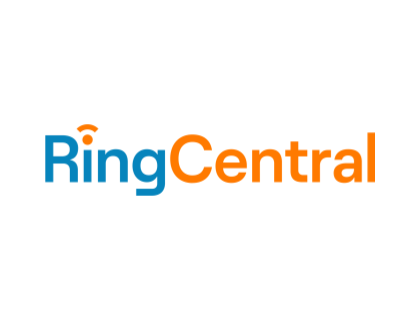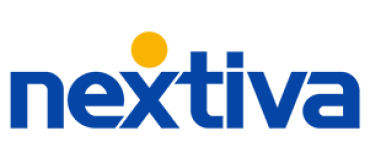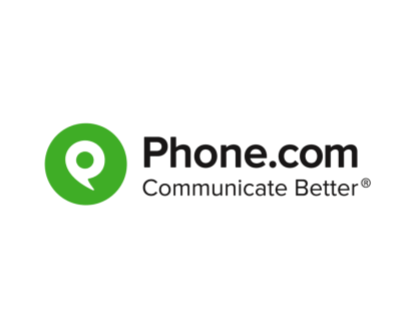Best Business VoIP Systems
Compare top business VoIP phone systems including RingCentral, Phone.com, and Nextiva. See pricing, features, and FAQs.
Updated on December 21st, 2023
The SMB Guide is reader-supported. When you buy through links on our site, we may earn an affiliate commission. Learn more
Business VoIP is a voice-over-internet-protocol phone system that can be used in an office to receive inbound calls and make outbound calls via the internet. The software for a VoIP system operates on a computer and can be used to gather information during a call.
- Choose local/tollfree numbers.
- Use any phone (land+mobile).
Best Small Business Phone Systems
Get information on the top business phone systems, including pricing, reviews, and FAQs.
Dec 21, 2023
Why We Chose RingCentral, Nextiva, & Phone.com:
RingCentral is easy to use and makes use of cloud-based technology. It offers a cloud phone, team messaging, online meetings, and online fax.
RingCentral seamlessly integrates with many popular apps, including Microsoft Teams, Salesforce, Office 365, NetSuite, Zapier, and MailChimp. RingCentral's integrations are supported across many different categories, such as CRM, analytics, education, ERP, financial services, and marketing automation.
RingCentral also offers a customizable, intuitive mobile app that features cloud PBX calls, integrated team messaging, and online meetings. RingCentral's mobile app is compatible with any smartphone.
Users of RingCentral can also opt for their global plan, available in over 40 countries, with international phone numbers in over 100 countries, and service localization for over 10 languages. Their regional and international plans are affordable and budget-friendly.
Nextiva is a scalable and cost-friendly VoIP phone system that offers standard features, such as auto attendant, call queuing, voicemail to email, and more.
Nextiva is a reliable VoIP system for small businesses that are looking for a unified communications solution. Their robust features are able to benefit businesses in different industries, including hospitality, consulting, real estate, education, and health care.
Phone.com is a cloud-based self service VoIP phone system created for small business. With affordable Voice over IP plans, starting at just $12.99 per month, users can access the system on multiple devices.
Phone.com comes equipped with a powerful mobile app and over 50 standard features, including conferencing, call recording, and cloud-based voice, video, SMS, and MMS.
Things to Consider When Evaluating Business VoIP Systems:
- Most business VoIP systems offer different plans for international calls, so if your business needs to make a lot of international calls you will need to choose a VoIP system based on your customers' geographical locations.
- If your employees travel a lot, look for a system that offers a fully-featured mobile app, as most providers do not offer mobile apps with the same services as the desktop apps.
- Look for third-party integrations, for example with CRM software or email marketing services, to improve the efficiency of your VoIP system.
Best Business VoIP Systems:
Rank | Name | Offer | Review | Learn More |
|---|---|---|---|---|
1. | From $30.00 /user /mo. | Offers great integration and customization capabilities but only stores recordings for three months. | ||
2. | From $30.95 /user /mo. | Offers strong ccustomer support and continuous updates. Trusted and highly recommended service. | ||
3. | From $12.74 /user /mo. billed annually. | Easy to set-up with good call quality and a convenient mobile app but the basic plan lacks video conferencing. | ||
4. | From $9.95 /mo. | Offers automated voice mail and call forwarding functionalities but plans are limited on minutes and additional per-minute charges are costly. | ||
5. | Contact for quote. | Features great tracking and reporting capabilities but lacks Dropbox integration. | ||
6. | From $18.95 /user /mo. | Offers seamless integrations with CRM systems and a great voicemail-to-email feature but lacks a text messaging feature. | ||
7. | Contact for quote. | Offers excellent reporting tools but has a complicated pricing system. | ||
8. | From $23.00 /user /mo. | A scalable platform with strong mobile support but the call quality diminishes with poor internet connections. | ||
9. | From $149.00 /mo. | An easy-to-use, fully customizable option with advanced reporting capabilities but does not record outbound calls. | ||
10. | From $19.95 /user /mo. | Offers great call quality and compatibility with existing hardware and landline phones but requires a separate wireless adapter. | ||
11. | From $19.99 /line /mo. | Features an easy-to-use interface with great call quality but requires a high-speed internet connection. | ||
12. | From $31.00 /mo. | Offers fantastic call screening and voicemail-to-email functions but porting phone numbers can take up to 10 days. |
RingCentral Core vs. Phone.com Basic vs. Nextiva Essential:
The entry-level VoIP plans of all three companies are designed for small businesses and startups. All plans offer the most basic features, including unlimited calling within the U.S. and Canada, business messaging, toll-free minutes, and more.
RingCentral Core and Nextiva Essential are the most expensive plans, with prices starting at $30.00 and $30.99 per user per month respectively. This is a significant price difference when compared to Phone.com Basic, which costs around $18.00 less. The RingCentral Core plan does provide helpful features like a toll-free or local business number, 1,000 toll-free minutes per month, and voicemail-to-text.
Phone.com's plans are packed with more advanced features and flexible limits. These include unlimited user extensions, plus 300 bonus minutes. However, while RingCentral users enjoy unlimited texting, Phone.com's are limited to 5,000 messages per month.
For the Nextiva plan, users receive similar features as Phone.com and RingCentral, with the addition of free online faxing.
RingCentral Essentials vs. Phone.com Basic vs. Nextiva Essential Comparison:
Feature | RingCentral Core | Phone.com Basic | Nextiva Essential |
|---|---|---|---|
Starting price | $30.00 /user /mo. | $12.74 /user /mo. billed annually. | $30.95 /user /mo. |
Unlimited calling within the U.S. and Canada | Yes | Yes | Yes |
Users | 100 | Unlimited User Extensions | 100 |
Number of Local or Toll Free Numbers | 1 | 1 | 1 |
Business SMS | Unlimited | 5,000 | No |
Standard Features (call forwarding, call waiting, call transfer, etc.) | Yes | Yes | Yes |
Free Trial | Yes | No | No |
Bonus Features | 1,000 toll free minutes per month. | 300 bonus minutes. | Free online faxing. |
Support | Phone, Email, Chat | Phone, Email | Phone, Email, Chat |
RingCentral Advanced vs. Phone.com Plus vs. Nextiva Professional:
RingCentral's Advanced plan is their third-tiered option, offering all the same features as the other lower packages, with the addition of single sign-on, unlimited video meetings (up to 100 people per meeting), and multi-site support. While Nextiva's Pro does provide unlimited audio conferencing as well, RingCentral is the only provider with unlimited video meetings.
For these advanced features, RingCentral users can expect to pay $35.00 per user per month. This price is quite steep when compared to competitors Phone.com and Nextiva, which both offer plans that are around $20.00 more affordable.
Phone.com's Plus plan includes all the features of the Base plan but this upgraded version also provides hold music, call forwarding, 10,000 SMS messages, two local or toll-free numbers, and 500 bonus minutes. But, unlike Nextiva and RingCentral, Phone.com does not offer any conferencing features.
Nextiva Professional is the closest competitor to RingCentral when it comes to features, but the prices are a little different. You can expect to pay $35.95 per user per month. For this price, Nextiva users can enjoy personalized greetings and access to the Nextiva app.
RingCentral Ultra vs. Phone.com Plus vs. Nextiva Professional Comparison:
Offer | RingCentral Advanced | Phone.com Pro | Nextiva Enterprise |
|---|---|---|---|
Pricing | $35.00 /user /mo. | $27.19 /user /mo. billed annually. | $35.95 /user /mo. |
Unlimited calling within the U.S. and Canada | Yes | Yes | Yes |
Users | 100 | Unlimited | 100 |
Number of Local or Toll Free Numbers | 1 | 2 | 1 |
Business SMS | Unlimited | 10,000 | Unlimited |
Standard Features (call forwarding, call waiting, call transfer, etc.) | Yes | Yes | Yes |
Free Trial | Yes | No | No |
Bonus Features | 2,500 toll free minutes per month. | 500 bonus minutes. | Unlimited conference calls. |
Support | Phone, Email, Chat | Phone, Email | Phone, Email, Chat |
RingCentral Ultra vs. Phone.com Pro vs. Nextiva Enterprise:
All three top-of-the-line plans are the three companies' most feature-packed plans, offering a wide selection of communication and collaboration tools. These plans are generally used by large to enterprise-sized businesses that need to handle high call volumes.
For $45.00 per user per month, RingCentral is similarly priced as Nextiva's Enterprise plan. Their Ultimate plan boasts all the features mentioned in the Advanced plan, with additional limits like audio conference calls and video meetings with up to 200 people per meeting, and 10,000 toll-free minutes per month. In addition, users gain access to advanced features like call recording and voicemail-to-text.
Phone.com's Pro plan costs $29.99 per user per month, around $15.00 more affordable than RingCentral. For the lower price, users do have less freedom due to their limited business messages (20,000 per month). However, Phone.com's Pro plan now includes video conferencing and 1,000 bonus minutes per month.
Nextiva's Enterprise is costlier than Phone.com, with prices starting at $45.95 per user per month. When it comes to features, the Nextiva Enterprise plan is similarly equipped to RingCentral, also offering tools like call recording and voicemail to text delivery, with the addition of voice analytics, which is also not listed in the Phone.com Pro plan.
RingCentral Ultra vs. Phone.com Pro vs. Nextiva Enterprise Comparison:
Offer | RingCentral Ultra | Phone.com Pro | Nextiva Enterprise |
|---|---|---|---|
Pricing | $45.0 /user /mo. | $27.19 /user /mo. billed annually. | $45.95 /user /mo. |
Unlimited calling within the U.S. and Canada | Yes | Yes | Yes |
Number of Local or Toll Free Numbers | 1 | 3 | 1 |
Business SMS | Unlimited | 20,000 | Unlimited |
Standard Features (call forwarding, call waiting, call transfer, etc.) | Yes | Yes | Yes |
Bonus Features | 10,000 toll free minutes per month. | 1000 bonus minutes. | Voice analytics. |
Support | Phone, Email, Chat | Phone, Email | Phone, Email, Chat |
How VoIP Works:
VoIP, also known as internet telephony, is an online-based telecommunications technology that transmits your voice as data over the internet. With this system, businesses won't need to use landlines as digital voice data automatically converts to a standard signal when calling a traditional telephone. This means that businesses using a VoIP system can make calls to any phone number including mobile and long-distance.
Pros and Cons:
Pros
- Affordable.
- Feature packed.
- Portability.
Cons
- Unable to make emergency calls.
- Depends on strong internet connection.
- Poor voice quality.
Common VoIP features:
- Web-based system administration.
- Mobile management (iOS and Android).
- Hold music.
- Call forwarding.
- Call recording.
- Conference calling.
- Automated attendant.
- Caller ID.
- Call queuing.
- Call transferring.
- Voicemail to email.
VoIP Requirements:
1. Network.
In order to successfully run a VoIP business system, you will need a strong network. Is your LAN (local area network) able to handle VoIP calls? To ensure that you get the best voice quality, you need to make sure your network is not congested. For example, if your business uses the internet or sends large files frequently, you should consider getting a separate network just for voice calls.
2. Special adapter.
To connect your VoIP system and make calls, you will need an adapter or a special VoIP phone. However, this depends on the VoIP system you choose. The adapter can either connect to your computer, the Internet via your router, or both. For example, Ooma requires users to have the Ooma Telo adapter.
3. Internet connection.
The most important part of managing a VoIP system is the quality of the internet connection. While you may see VoIP as the more affordable option, you will need to spend additional capital to improve the speed and quality of your internet connection.
How much bandwidth do you have? How much bandwidth will you need to cover all your employees? To determine how much bandwidth your VoIP system needs, ask your potential VoIP service provider about the size of their voice packages, then multiple this number by how many calls your business makes at any given time.
FAQs:

What is the best VoIP service for small businesses?
How do I set up a VoIP phone system for a small business?
Get in contact with a VoIP provider like RingCentral or Phone.com to get started. It's pretty easy to set up these days, with a number of providers catering to small businesses.
How much does VoIP cost?
Business VoIP services can cost anywhere from $10.00 to $62.00 per user or line per month. An enterprise VoIP business phone service for global businesses can cost $100.00 or more per user or line per month.
How reliable is VoIP?
As reliable as your internet. This is one potential pitfall of using VoIP for small business operations. Make sure you have a strong and reliable internet connection to minimize the risk of downtime.
Do most business VoIP providers install their phone system for you?
If you purchase a cloud-based business VoIP phone service, you can probably install the system yourself. However, if you're also purchasing hardware from business phone providers (like new phones and headsets), installation specialists might be required.
Is there technical support for a VoIP phone system for business?
Yes, business VoIP service providers have customer support and technical support lines to help you whenever you run into an issue with your software. They are also a great resource if you have general questions about how to use your business VoIP systems.
Does my VoIP business phone have caller ID?
Many business phone service providers offer enhanced caller ID as an added feature. Unless this feature is included in the basic package, you may have to pay extra for it. Caller ID on a VoIP business system can tell you who is calling, what their number is, and where they are calling from. It can also transfer this information directly into a call log for future reference.
Is the call quality of VoIP systems for small businesses as good as a normal phone?
That really depends on what system you purchase. Most VoIP services for small businesses now maintain a call quality that is as good as or better than a normal phone. According to many reviews of VoIP phone systems for small businesses, customers on the other end of the phone can't even tell that the business is using a VoIP system.
What is needed for a VoIP phone system?
There is a minimal amount of hardware required to get you connected to your VoIP phone system. VoIP hardware consists of a router, modem, and either an ATA or IP phone. You will need an internet connection.




